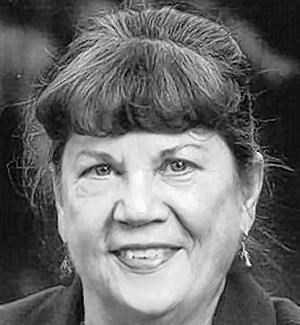Helen Hull Hitchcock

Helen Hull Hitchcock was a writer, Catholic activist, and one of the founding editors of Adoremus Bulletin. Along with Jesuit Father Joseph Fessio, founder of Ignatius Press, and Father Jerry Pokorsky, co-founder of Credo, a society of priests committed to promoting a faithful translation of the liturgy, Hitchcock helped establish the Bulletin as one of today’s most respected journals on the Catholic liturgy. But Hitchcock’s work for Adoremus was only part of the legacy that this dynamic woman of faith left upon her death after a brief illness on October 20, 2014. The mother of four daughters and wife of renowned Catholic author and Church historian, James Hitchcock, she converted to Catholicism in 1984 from the Episcopalian Church. Her conversion was due in part to the same kind of feminist politicization of the liturgy that she would later discover and battle successfully in the Catholic Church.
That September of the year Hitchcock entered the Church, she and five other women founded Women for Faith and Family (WFF), which in their mission and vision sought to present an accurate portrait of authentic Catholic womanhood. The group came together after the U.S. bishops announced their intention to publish a pastoral letter on women’s concerns. Of particular concern to these six women, however, was the way in which such feminist organizations as the pro-abortion dissenters, Catholics for a Free Choice (now known as Catholics for Choice), presented an inaccurate portrait of Catholic women to the media as alienated and embittered by supposedly inherent sexism with the Catholic Church—and how that portrait might influence the bishops’ pastoral letter.
In response, Women for Faith and Family martialed an aggressive campaign against feminist efforts to warp the image of Catholic womanhood by providing an eight-point declaration of fidelity to Catholic teaching—and what amounted to the organization’s founding document—the “Affirmation for Catholic Women.” The WFF circulated the Affirmation—by hand and postage stamp—among thousands of women, religious and laity alike, asking them to sign the document as a way to show their solidarity as authentic representatives of Catholic womanhood; however, in addition to signatures, WFF received within those first few months more than 4,000 letters (within ten years, the count swelled to 40,000), expressing heartfelt thanks from women who described not only their experience of being ignored or persecuted for holding the truth of the Catholic faith, but also their joy and consolation in living out that faith as wives, mothers, and women religious. Through public testimony, mailings, a newsletter, and annual conferences (1985-1999), WFF helped defeat the proposed bishops’ pastoral letter on women. First drafted in 1988, the letter was finally rejected by the U.S. bishops in its third-draft form at the NCCB meeting in 1992.
After this victory, Hitchcock moved effortlessly to her next battle with the feminists: the concentrated effort to impose inclusive language on English translations of the liturgy and sacred scripture. She served as editor of the 1992 Ignatius Press book Politics of Prayer: Feminist Language and the Worship of God, a collection of essays by writers from across the religious spectrum—including both Christian and Jewish scholars. The essays provide an effective testament to maintaining the integrity of language in sacred scripture and traditional expressions of prayer—and a warning against the folly of attempts to cheapen these true expressions of faith for the sake of indulging passing fads and exacting political points to undermine the time-honored norms of organized religion.
Three years later, Hitchcock was invited to become the editor of Adoremus Bulletin, where she continued to fight the “liturgy wars” and, in the process, transformed Adoremus into a mainstay of liturgical wisdom for Catholics around the globe. Providing a foundation for Adoremus’s future success, Hitchcock published scholarly yet accessible articles on the sacred liturgy, and contributed—with her trademark wit and intelligence—memorable commentary and editorial analysis on all things liturgical. During her tenure at Adoremus, Helen Hull Hitchcock brought the same fervor for the Catholic faith and love for Jesus Christ that defined her life as a wife, mother, and champion of Catholic orthodoxy.